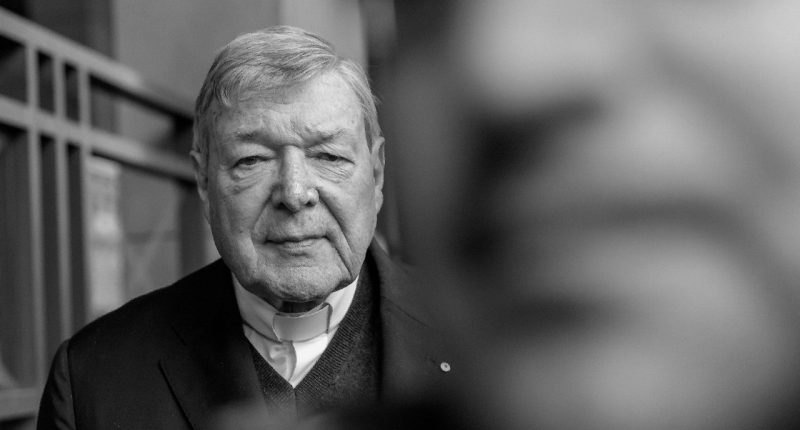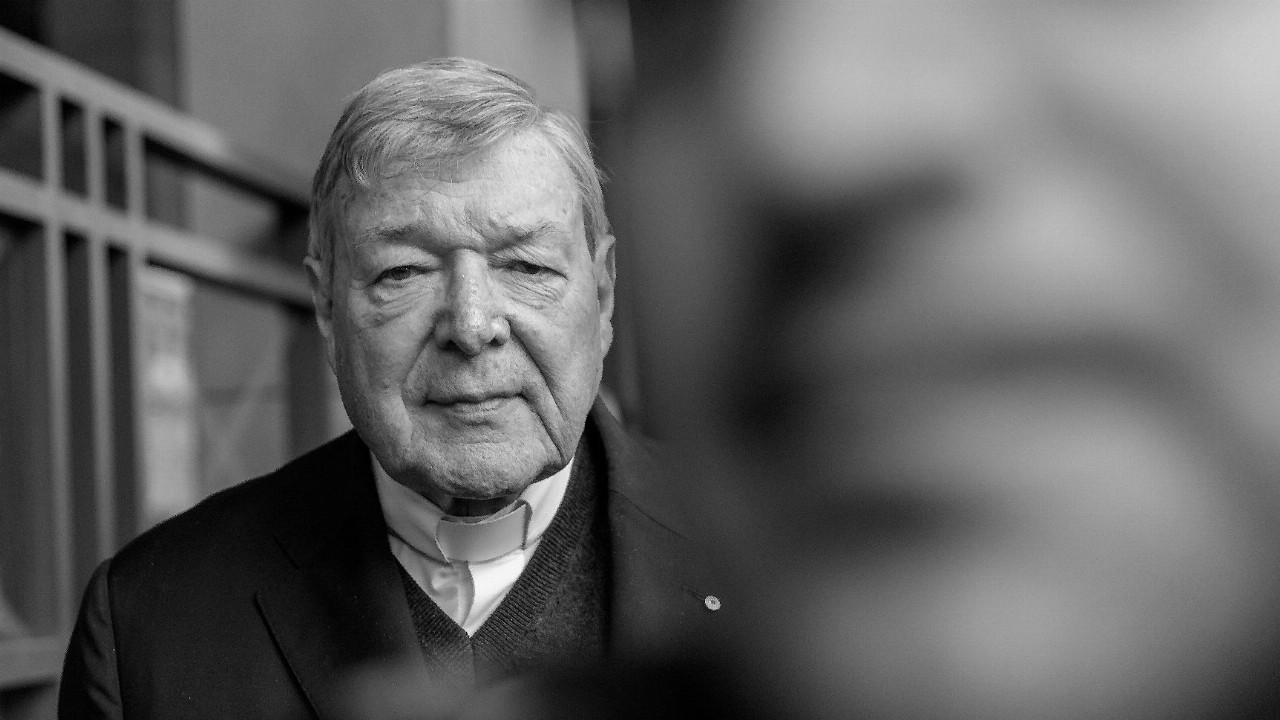When figures like Cardinal Pell or former senator and soldier James Molan die, we are given a rare insight into the way in which power works in our society. At such moments, it can be incredible to watch the voices of the status quo come together and build a narrative the rest of us are just meant to accept.
In discussing such matters, my intention is not to cast aspersions, only to consider the extent to which power rallies to protect itself, how the automatic stabilisers of the status quo lock into place, and how calls for “civility” are deployed strategically to embolden some voices while silencing others.
We saw a similar process unfold after the death of Queen Elizabeth II.
The wall-to-wall coverage that engulfed mainstream media for, literally, weeks, forced us into a way of seeing the world not as it was but how an establishment power wanted it to be, and we can only imagine how bad the orgy of Royal narrowcasting would have been had First Nation’s people and other victims of British colonisation not been able to push back through the platforms of social media.
Any criticism of the monarchical power of which the Queen was head — a power with deep roots in colonialism, patriarchy and class — was dismissed as inappropriate. The over-the-top coverage of her death, and the insistence that any related discussion be “civil”, was a way of reinforcing the legitimacy of establishment power and maintaining the myth of a hands-off, symbolic-only sovereign.
Such coverage may well have met a technical definition of “civil”, but it was fundamentally dishonest, a narrative constructed in service of power, not truth.
All this happens because in a democracy, the legitimate violence on which democratic rule rests needs occasionally to show its teeth. Whether the power being protected is political or patriarchal — oftentimes a distinction without a difference — the bearers of that power require the rest of us to understand our place, and the death of members of the great and good is a perfect moment for that power to remind us of its existence.
In political theory, legitimate violence refers to the use of force by the government to uphold the rule of law, protect citizens’ rights, or maintain public order. Theoretically, a government will only resort to legitimate violence in extreme circumstances, such as the need to suppress rebellion or protect people from a criminal threat. The principle is sound, but it creates an immense grey area in which state power can assert itself invisibly, by threat or the creation of expectation.
That is to say, it can assert itself whichever way the people who wield this legitimate violence, this power, choose to exercise it. It asserts itself in the way in which bearers of public values, such as the media, choose to confer honour (or shame) on certain individuals and not others, or are willing to rationalise behaviours in some people that they would not tolerate in others.
It is simply a fact that question marks hang over the legacy of both Molan and Pell, the sort of question marks that, in many others, would put them beyond the pale. The Cardinal was severely chastised by a Royal Commission for the way in which he handled accusations of child abuse within the Catholic Church, finding after a five-year investigation that Pell failed to take proper steps to deal with priests suspected (and sometimes found guilty) of abuse.
Molan, who was seconded from the ADF to US command to plan and direct the 2004 attacks on Najaf, Fallujah and Samarra, acquired the nickname “butcher of Fallujah” because of the nature of those attacks. Credible sources have said the attacks involved, amongst other extreme measures, the use of white phosphorus, with US Colonel Barry Venable admitting that, “Yes, it (white phosphorous) was used as an incendiary weapon against enemy combatants.”
Despite these grave matters, Molan and Pell were praised as great men, any doubts about their professional legacies either erased or rationalised. As The Saturday Paper’s legal affairs editor noted, “The day after Pell’s death, The Australian published 20 swooning articles, and another 26 up to the middle of this week.”
That, as well as the many public figures who were happy to go on record with praise for both men.
Former Federal Treasurer and Australian Ambassador to the US, Joe Hockey, wrote on Twitter: “I am immensely saddened to hear of the unexpected death of Cardinal George Pell. He was a man of deep faith and great integrity. He was blessed with fortitude, courage, determination, and intellect. He was proudly Australian.”
Australian Prime Minister, Anthony Albanese, tweeted that “Jim Molan lived his life in service of our country. He was a man of principle and a politician of conviction. My condolences to his loved ones, colleagues, and friends.”
So civil.
When you consider the way in which state power, and the power of the media, can be wielded against the most vulnerable members of our society — as is currently being uncovered in sickening detail by the Royal Commission into the Robodebt debacle — it is shocking to see the way in which members of the broad political class are not only shielded from criticism but thrust upon us as men of virtue, even as the public record brings that assessment into question.
Pleas for a more civil political discourse — to which we are often treated by the same sorts of voices praising Molan and Pell — tend to focus on the use of bad language or name calling and become particularly exercised by the robust commentary of social media. But such pleas mostly ignore the transgressions against civility that occur when the full force of legitimate violence is used to maintain the status quo.
This deeper incivility — the kind embodied by the power the state and its functionaries wield in the maintenance of their own position and values — is rarely addressed.
The fact is, such power is often well-dressed and polite — civil — and we can, therefore, forget the violence that underpins it. When it does assert itself, it does so with a smile; with the full support of the great and the good, and with a veneer of not just patriotism, but a deep conviction of inevitability, as if there were no alternatives to be considered or other stories to be told. Civility, in such circumstances, is just power in its Sunday best, ruthlessly doing the work of excusing the failings of the political class, with only its victims standing witness to its full violence.
And while those victims suffer, the rest of us are encouraged to just get on with our lives, coddled by official narratives that bestow upon the likes of Molan and Pell the benefit of every doubt.
Tim Dunlop is Melbourne-based writer. His new book, “Voices of Us”, about the rise of the “teal” independents, was released on 1 December.
Stay up to date on all the latest commentary, analysis and opinion pieces from Art of the Essay by following on Twitter, Instagram, Facebook and LinkedIn.





